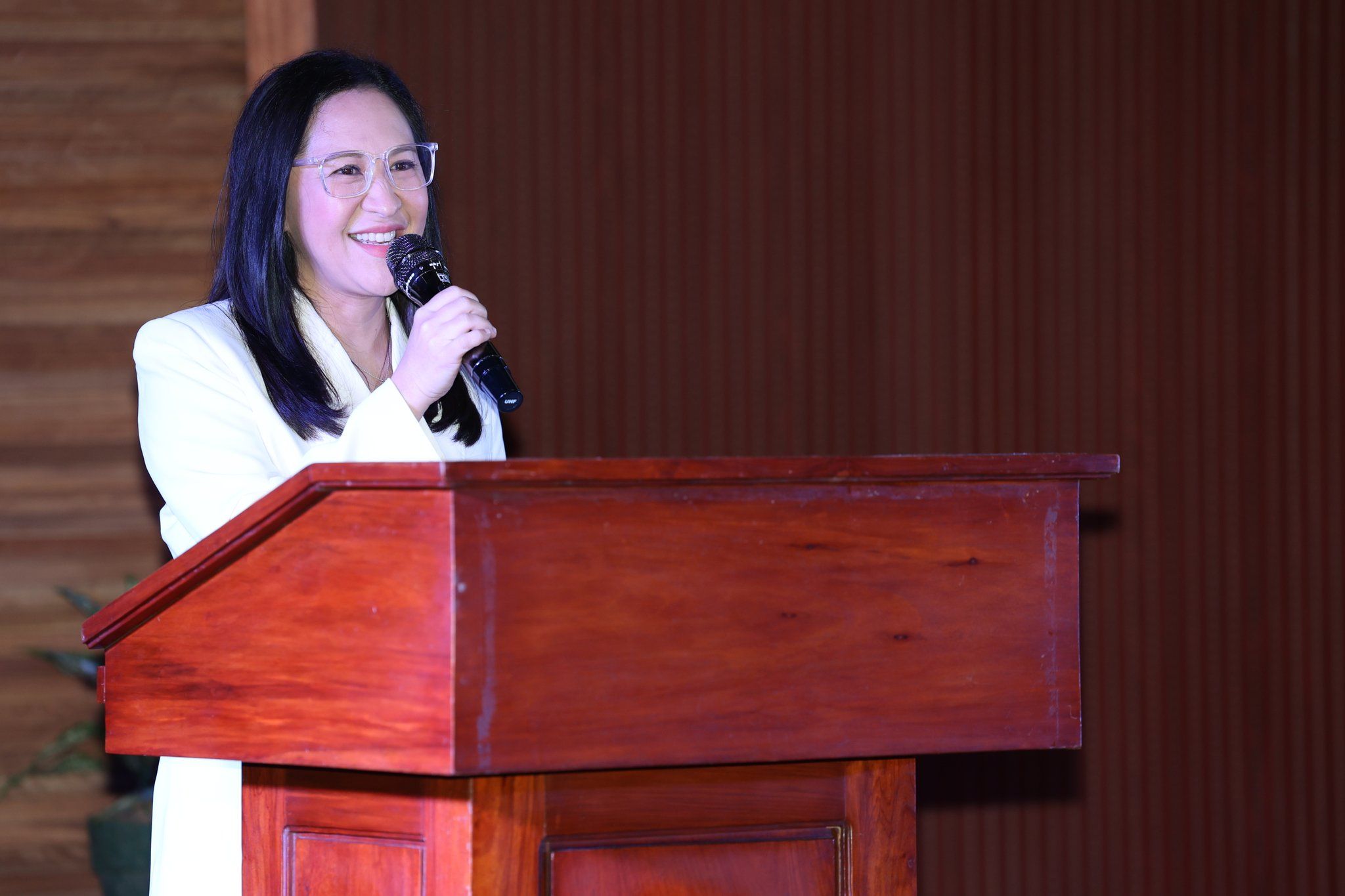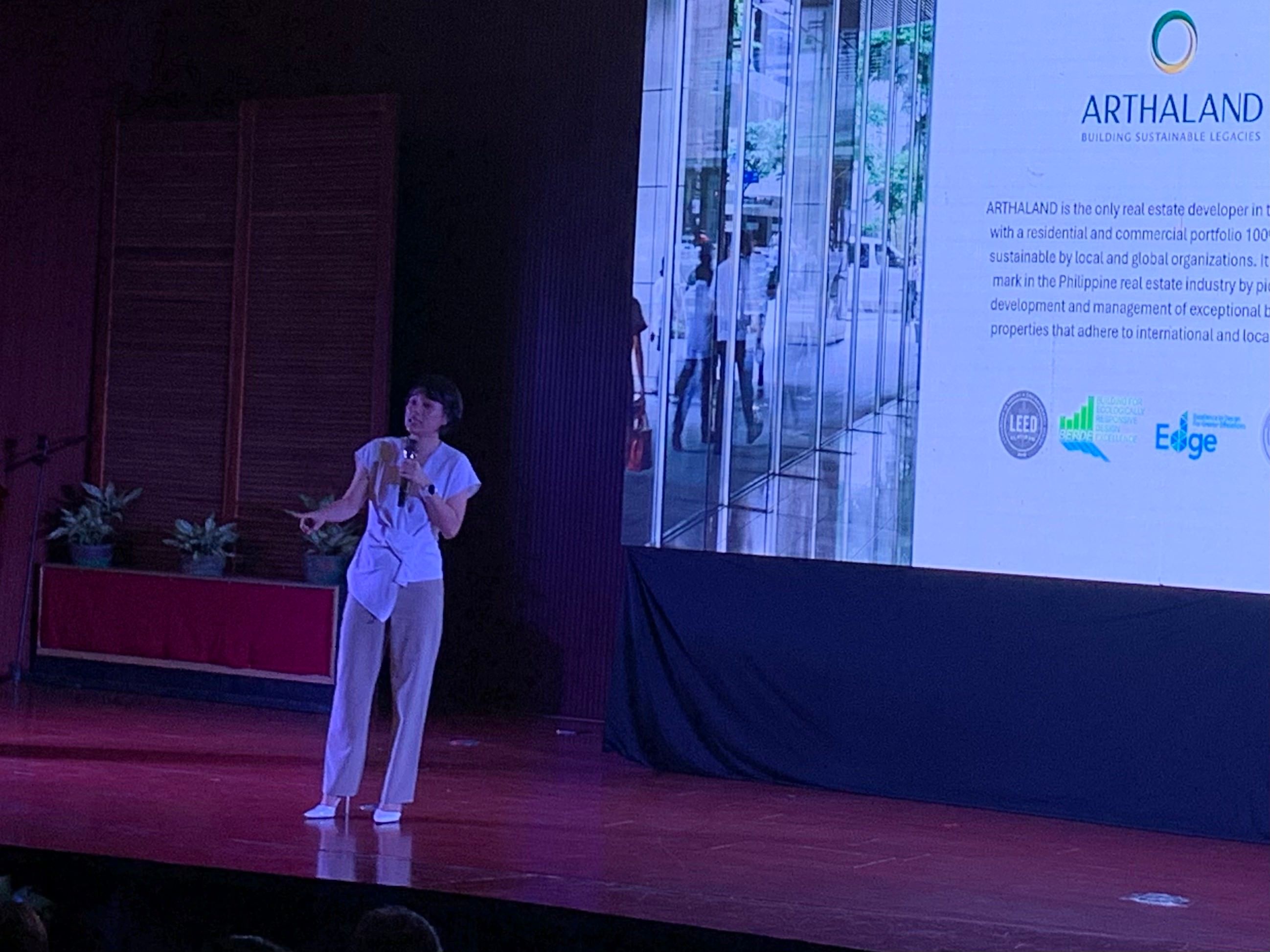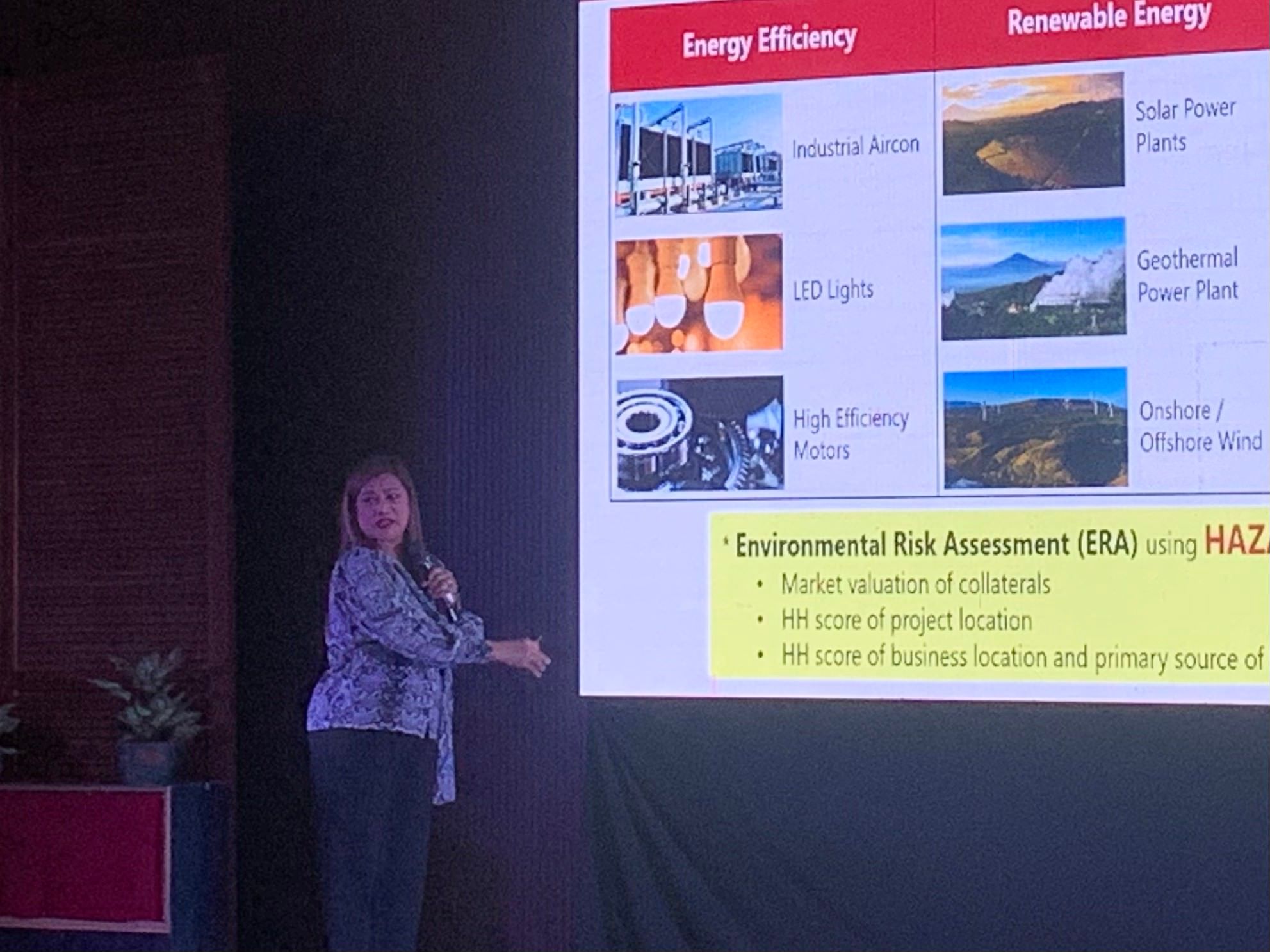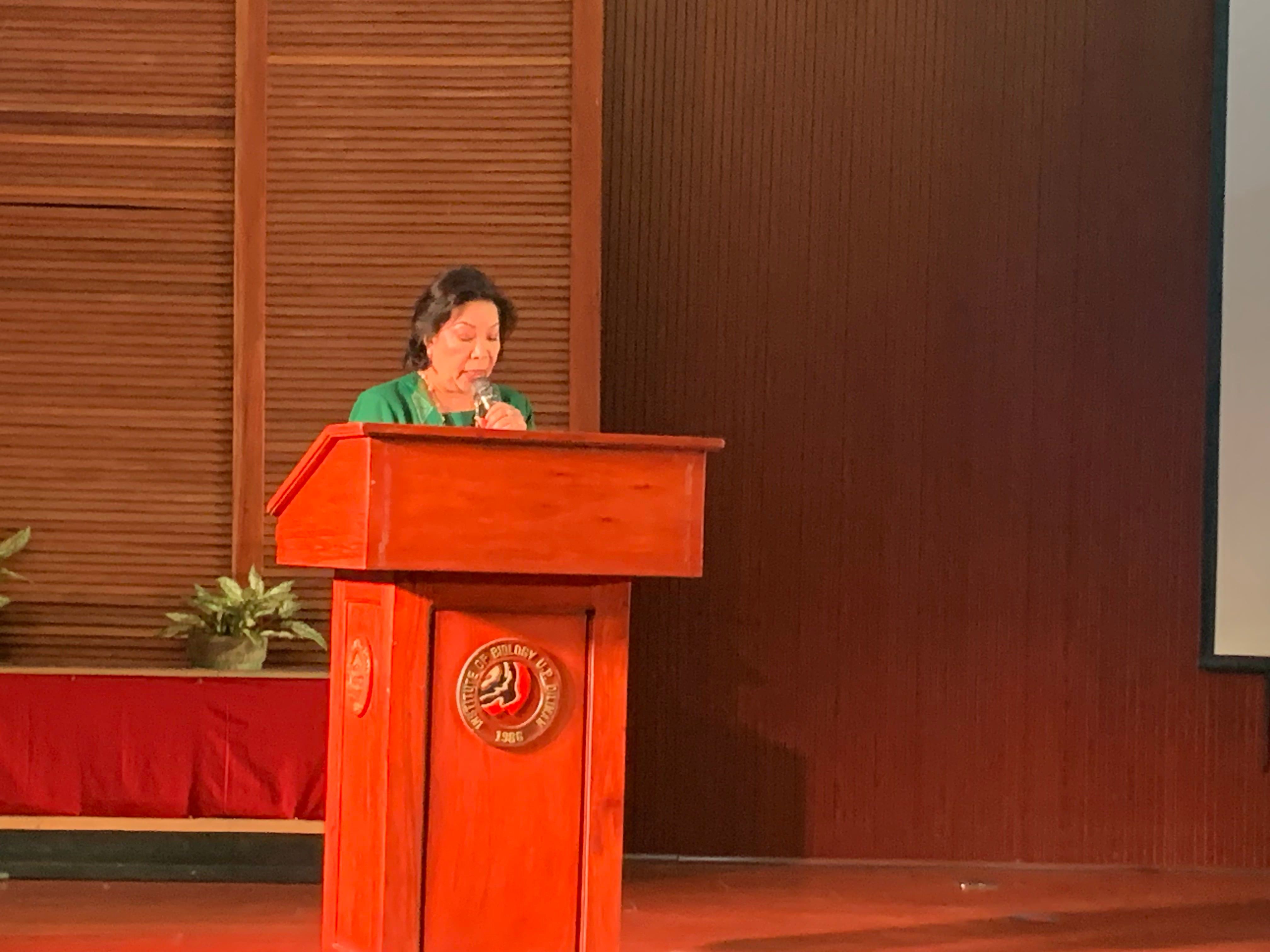Manila Bulletin conducts 3rd Sustainability Forum: Day 1 highlights
Key leaders gather to bridge the gap and build partnerships on sustainability
By Mat Richter
It’s easy to feel frustrated and point fingers when facing abnormal weather patterns, especially in the disaster-stricken Philippines, where calamities swing by like unwanted visitors who frequent poor communities. Lest we forget, developing nations suffer the most from rich countries' climate-harming activities. We must indeed demand accountability, but sustainability requires all of us to do our part. Have you once checked your carbon footprint?
Most people don’t know they can check their climate impact online with one tap. Some aren’t aware of the existing resources to be eco-friendly, including the “Kuha sa Tingi” refill hubs that curb plastic use in neighborhoods. Many aren’t informed that caring for the environment is just a fraction of sustainability. These are some gaps addressed at the third sustainability forum of the Manila Bulletin, where industry leaders pledged to attain a greener future and shared what they know best on how it can be achieved.
As climate change looms large, let’s address issues on the need to save the planet (or ourselves) with a heightened sense of urgency. After all, we only have one shared home; it’s time to be part of the change.
Demanding climate action
The Manila Bulletin Sustainability Forum 2024 gathered key leaders to share and build green efforts at the Institute of Biology Auditorium, University of the Philippines Diliman on Tuesday, November 19.
With the theme “Bridging the gap: Forging connections and perspectives on sustainability,” the two-day forum seeks to amplify the calls for eco-friendly living and create a network of leaders sharing the same mission.
Quezon City Mayor Joy Belmonte graced the first day of the forum and pressed the need to prioritize green spaces over infrastructure.

“Over the summer, we endured record-high temperatures, with the days scorching hot like never before. Many communities that were previously not prone to floods experience it now. As we equate progress with more concrete structures, most urban areas are now bereft of green spaces,” she said.
The mayor addressed how the climate crisis ultimately affects poor families and people living in coastal areas, citing that wealthy people amid disasters can continue being productive while the impoverished face widening inequality and lose their income.
“The issue with our environment is a social issue. We have seen far too many instances of loss. And we must acknowledge that our viewpoints and ways must change far beyond our old ways. And please, let's not keep saying we are resilient,” she stressed, pointing out how Filipino resiliency has been misused and glamorized during calamities.
Belmonte also expressed her team has appealed to top plastic sachet producers to shift to sustainable packaging, but they weren’t heard, stating that the sachet culture comprises 60 percent of their income.
“They refuse to listen to the call to increase sustainability. So, I hope that in the next year, they will be the only ones we have here at the forum,” she urged.
Green goals
Ayala’s ACEN continues to push for renewable energy, having built 5.3 GW of renewable energy capacity, with solar and wind sources taking the lead. It aims to grow its renewables' capacity to 20 GW by 2030. The company also hinted at potentially retiring the coal plant “earlier than it’s operating now.”
“ACEN is currently working with the Monetary Authority of Singapore to see how it could potentially use its net-zero credits to help fund the early retirement of coal,” said Jaime Urquijo, chief sustainability and risk officer at Ayala Corporation.
Meanwhile, Arthaland seeks to turn global goals into local action. According to the property, it’s the only real estate developer in the Philippines with a residential and commercial portfolio 100 percent certified as sustainable by local and global organizations. In 2019, it achieved the EDGE Zero Carbon certification.

The company also shared that it has an “Arthaland Masterclass” where architecture students get to hone their passion through a green skills training program, where 33 percent of undergraduates already have green jobs.
For AboitizPower, it plans to add 3,700 megawatts to its RE portfolio to work toward 4,600 megawatts of clean energy in a balanced mix of sources. It aims for a 35 percent RE share in the country’s power generation mix by 2030 and 50 percent by 2040.
“Our priority lies in engaging with communities and working with our hosts to mitigate the impact of our operations. The trust of the communities we serve is vital to achieving long-term sustainability,” said Ronald "Suiee" Suarez, VP for corporate communications at AboitizPower.
The Bank of the Philippine Islands (BPI) has a Sustainable Development Finance program where it funds SMEs for changes in air-conditioning, lights, machine efficiencies, and energy sources like solar. It also committed to reducing its coal use to zero by 2032.

“You cannot plant trees or give food to the people behind your house and say, okay, I did something sustainable. No, it cannot be. It has to be related to what you do, so if you're in credit card tax, you go paperless,” said Jo Ann Eala, head of sustainability at BPI.
Meanwhile, the Development Bank of the Philippines (DBP) pledged to reduce its greenhouse gas emissions by 75 percent by 2030. Its Financing Utilities for Sustainable Energy Development program increases access to electricity services by funding utility-scale energy generation projects, including RE and power transmission and distribution efforts.
“We also have the DBP forest, which is a corporate social responsibility program. It is an initiative of DBP primarily to protect the country's critical watersheds and coastal areas, and enhance protection of the environment,” said George Inocencio, executive VP and head of development and resiliency sector at DBP.
For International Container Terminal Services Inc. (ICTSI), the company said it uses solar panels, recycles water in its wash base for equipment, and utilizes LED lights in its terminals to help achieve greener operations.
“Companies like ICTSI are able to make ripples of change, not only within their company for their employees but also to the local communities who are in need. They have a presence in the countries where they are located, but as in our case, globally,” said Atty. Lirene Mora, VP for global legal affairs at ICTSI.
As calls for RE get amplified, Wilcon Depot said 51 percent of its 98 stores have been equipped with solar panels to help reduce its environmental footprint. It also prides itself on offering eco-friendly products, ranging from building materials and housewares to indoor items.

“When it comes to sustainability, the future of the planet is bleak. This means we have to take action because time is rapidly diminishing. Securing a sustainable future is now a must-have,” said Rosemarie Bosch-Ong, senior executive VP - COO at Wilcon Depot.
Meanwhile, Mondelez International claimed that 96 percent of the packaging used in its products is now recyclable, and it supports the Extended Producer Responsibility law.
“We are recycling, upcycling, recovering, and collecting post-consumer plastic packaging. We also use recycled content in our packaging,” said Aleli Arcilla, managing director at Mondelez International.
Cheers for eco-friendly living reverberated through the auditorium as industry leaders pledged to cut down on emissions. The sustainability forums of the Manila Bulletin through the years have proven that different industries can share a common goal in building a sustainable home. We can’t ever deny our role in climate warming, as it’s man-made, but we can help mitigate its grave consequences as soon as we turn sustainability into a habit, and allow the idea of “less is more” to lead our consumption choices.
The Manila Bulletin Sustainability Forum 2024 was held in collaboration with Ayala Land, International Container Terminal Services, Inc., AboitizPower, ACEN, Arthaland, Ayala Land, Damosa Land, Development Bank of the Philippines, Filinvest City, Megaworld, Bank of the Philippine Islands, Mondelez International, RLC Residences, SM Investments Wilcon Depot, University of the Philippines Diliman, and Citadines Roces.